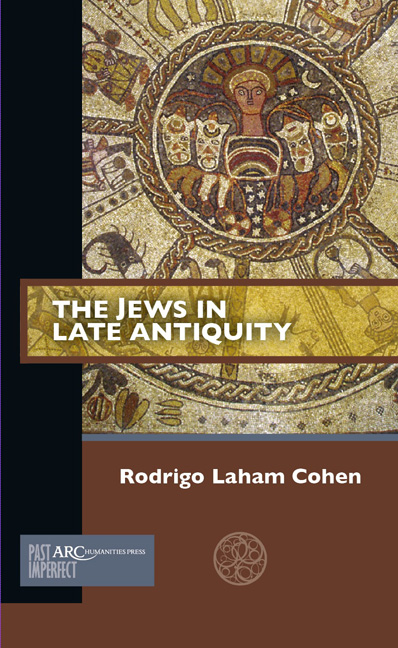Chapter 4 - Gaul
Published online by Cambridge University Press: 28 January 2021
Summary
No more than three lamps decorated with menoroth were found in ancient Gaul, representing the entire late ancient Jewish archeological record in the region (Boddens Hosang 2010, 127– 28). In addition, only three inscriptions were discovered. Among them, one—the most important, an epitaph that will be analyzed in the following chapter—pertained to the western region of the Gallia Narbonensis, under Visigothic control. The others were a seal with the name Ianuarius and a menorah (I Jewish Inscriptions of Western Europe (= 1 JIWE) n. 190), and a ring that contained the name Asterius and two menoroth (1 JIWE n. 192). It is worth noting that the ring and seal could have belonged to people just traveling in Gaul (Handley 2000, 239– 54). O nce again, we need nonJewish sources.
The first reference to Jews in a Gallic source comes from Ravennius (d. ca. 461 CE), Archbishop of Arles, who stated that Jews attended Hilary of Arles’ (ca. 401– 449) funeral and sang—in Hebrew—in his honour (Vita Hilarii Arelatensis 22, 29). There are several stories about Jews mourning and honouring Christian bishops in the period. Even though it is not impossible that Jews could have had a good relationship with a bishop, the most probable hypothesis is that these kinds of narratives were intended to glorify the saints’ image. For that reason, information provided about singing in Hebrew has to be approached with caution.
With Sidonius Apollinaris (ca. 430– 489 CE), bishop of Arles, we are on firmer ground. He mentioned Jews and former Jews converted to Christianity in his letters. In fact, despite criticizing his Judaism, he commended a Jew called Gozolas in two epistles.
However, in Gaul there were also churchmen who vilified Judaism from the beginning of late antiquity. For example, Hilary of Poitiers (ca. 310– 367 CE) repeatedly condemned Jews from a theological point of view. In Hilary, Jews functioned merely as hermeneutical devices to construct and transmit Christian identity. In fact, we do not know if he actually interacted with Jews. The same applies to Prosper of Aquitaine (ca. 390– 463 CE).
- Type
- Chapter
- Information
- The Jews in Late Antiquity , pp. 33 - 41Publisher: Amsterdam University PressPrint publication year: 2018



